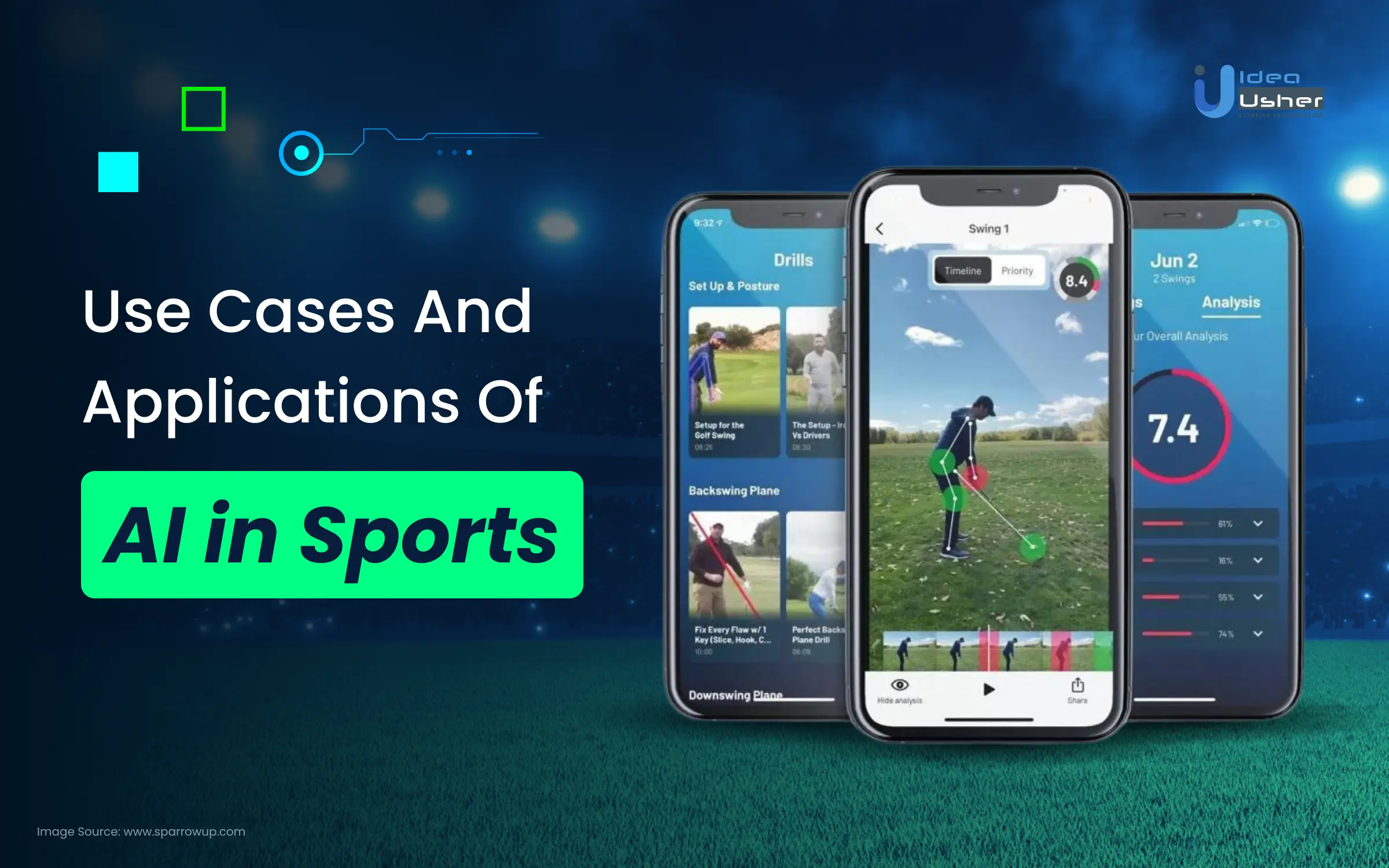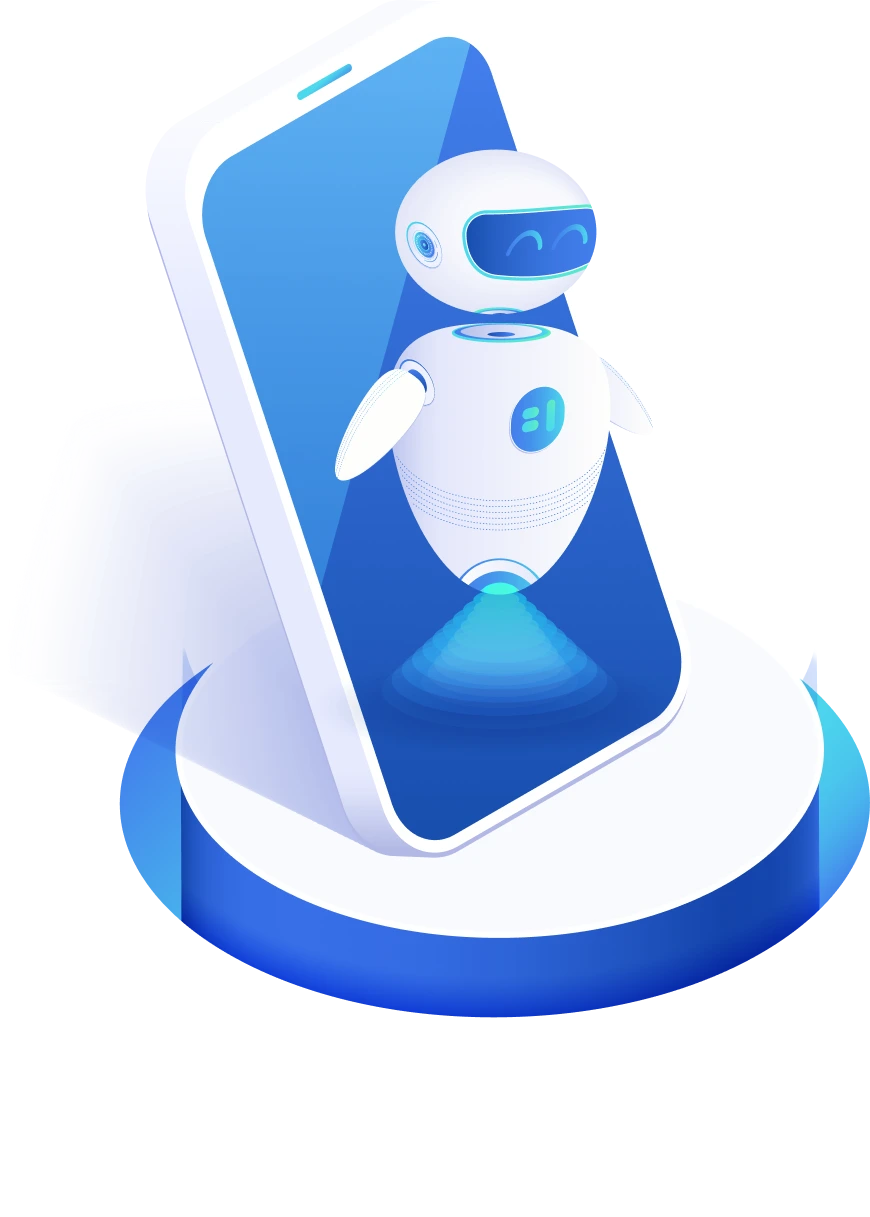AI plays an integral role in the sports industry and will continue to impact in the future. The sports industry is benefiting with a limitless potential to improve every aspect, including the recruitment process, advertising, tracking player movements, etc.
AI in the sports industry has completely changed how we analyze and consume sports. AI is transforming sports in a smarter way for broadcasters, athletes, advertisers, and viewers with real-time statistics.
The global market for the sports industry has been growing rapidly. Integrating artificial intelligence with sports businesses and mobile apps offers an excellent opportunity to dominate the sports industry.
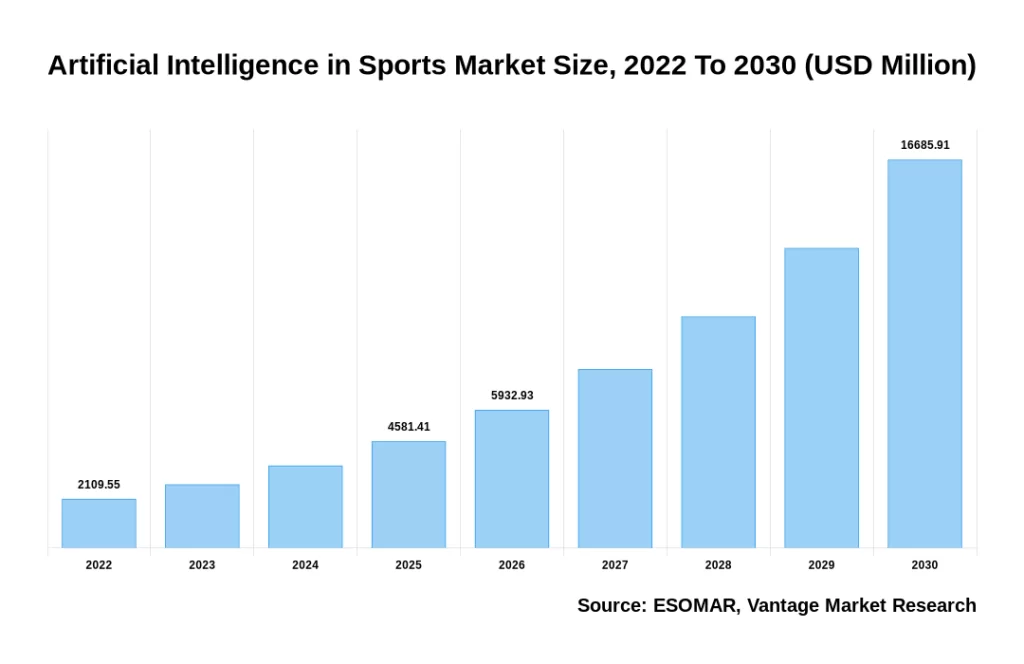
In this article, understand potential applications, use cases, and the process of implementing AI in sports.
Factors Advancing Market Growth For AI In Sports
The multiple encouraging factors for the growth of AI in the sports industry are as follows.
- Surge in need for player surveillance and monitoring
- Demand for real-time data analytics is increasing
- Increasing demand for sports forecasts and predictions using AI
- A need for chatbots and virtual assistants to communicate with sports fans.
- The usage of mobile applications such as ESPN, HomeCourt, SmartCoach, etc provides a good medium to access sports events and providing an enhanced way for players’ training.
AI Framework For Spots Industry
Many sub-domains, including machine learning, computer vision, natural language processing, etc., have been covered by Artificial Intelligence.
AI technology works based on the data submitted to train their algorithm. Drones and self-driving automobiles are complex levels of artificial intelligence.
However, for basic usage in the sports industry, AI applications include AI-based chatbots, player monitoring, etc. The practical usage of machine learning algorithms can be combined with computer processing to enhance the sports viewing experience for audiences in both stadium and mobile apps.
AI in sports comprises various applications and use cases, such as.
Game Analytics: This includes match event umpire assistance, player tracking, sports betting, match, outcome, etc.
Talent acquisition in identification: There is an inclusion of player performance measurement, player recruitment, biometrics, etc.
Fan and business management: This includes ticket pricing optimization, virtual and augmented reality sports watch, measurement of player economic value, Modelling demand for event attendance, sensor and wearable design, etc.
Training and coaching: This includes team formation assessment, player injury modeling, tactical planning, etc.
The artificial industry in the sports industry proved beneficial in tackling the challenges we discussed above. However, there are more AI-based use cases and applications in the sports industry that you can check.
AI In Sports Use Cases And Applications
Here are the significant applications of artificial intelligence in the sports industry
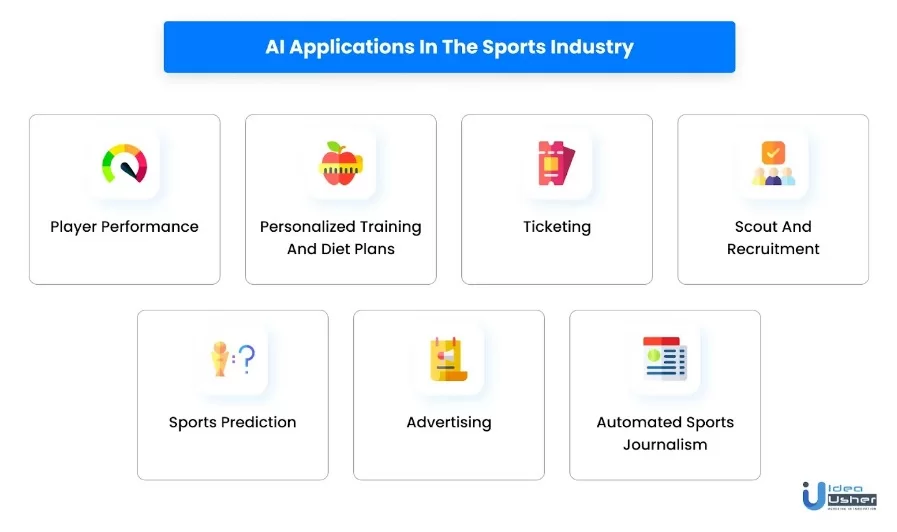
1. Player Performance
Players can utilize AI-based sports apps to boost performance and health. Athletes can gather information on tear and strain levels with the help of wearable technology and can avoid further serious injuries.
Even coaches can gain insights into the strength and weaknesses of the players using visuals and data collected by variables on the sports app.
Moreover, with the help of computer vision (a powerful subfield of AI), Various sports, from tennis to football, can use this technology to track the precise movements of players to determine the precise results of the sports.
2. Automated Sports Journalism
AI has simplified sports journalism, where every highlight needs to be covered. For example, AI-driven apps can turn score data into narratives using natural language processing techniques. These applications are intelligently synchronized with computer vision to perform journal score hearing.
The updates and details of sports are strictly heard when it comes to data and statistics in tournaments and minor leagues. The AI in sports can even cover local matches without needing officials to stand on the field.
3. Personalized Training And Diet Plan
Many apps are setting a perfect example of how AI is taking personal training to the next level. A popular example is woman’s fitness app development, where skeleton models are used to identify human joints for online yoga and pilates.
Numerous AI-based fitness apps have flooded the market, allowing the training of algorithms to detect human poses in real time. For example, an AI diet plan uses machine learning to customize different meal plans for different players based on their schedules and needs.
4. Ticketing
Recently, Columbus Crew adapted AI-based face recognition technology to enable fans to enter the stadium without showing their tickets.
In many cases, the audience struggled to get inside the stadium on time during big sporting events because of crowd issues and ticket checking process.
AI technology has brought productive and cognitive analytics to determine what attendance will likely be at the stadium and the timing schedule.
5. Sports Predictions
AI in sports does not predict the exact outcomes but can give much closer predictions with algorithms. With the help of algorithms, artificial intelligence predicts the outcomes of sports with the help of the following data.
- A team’s composition
- Key passes for the goal-scoring opportunity
- The number of passes between teammates etc.
- Total goals scored
6. Scouting And Recruitment
The sports industry can improve the recruitment process by leveraging the power of artificial intelligence. Every activity during the player recruitment process, from movements to their body orientation, can be tracked with artificial intelligence to make the right decision.
Moreover, with the help of machine learning sports industry can gather all valuable data regarding their players’ skills and potential in various game categories.
7. Advertising
Artificial intelligence can also identify opportunities for placing relevant ads based on audience demographics. Brands can improve their campaign to get maximum returns with their advertisement with AI.
Also, brands can use Artificial Intelligence and Machine Learning based automated learning algorithms that monitor players’ actions and audience emotions during matches to place their ads effectively.
Technology Stack To Implement AI in Sports
The tech stack for implementing artificial intelligence in mobile apps are as follows.
| Application and data | Firebase, Swift, Kotlin Cloudinary, Realm |
| Utilities | Google Analytics, XCTest |
| DevOps | Crashlytics GitHub, Xcode, Fabric by Twitter. |
| Business tools | Sketch, Gmail, Sumerian, Invision, SwiftLint. |
| Neural Networks | CNN, RNN, Representation learning, Manifold learning, Variational autoencoders, Bayesian networks, Autoregressive networks |
| Algorithms | Supervised/unsupervised learning, Clustering (density-based Hierarchical, partitioning), Metric learning,Few-shot learning |
| Libraries | OpenNN, Neuroph, Sonnet, Tensorlfow, Tensor2Tensor, tf-slim |
| Modules/Toolkit | Microsoft Cognitive Toolkit, Core ML, Kurento’s computer vision module |
| DL Frameworks | PyTorch ,MXNet, Nvidia Caffe,Caffe2, Chainer, Theano |
Data Sources For Training Sports AI Model
For the effective training of machine learning-based algorithms and data models, you can consider the following sources for data collection.
1. GPS Wearables
Popular sports such as football can utilize GPS devices for tracking additional data from the athletes, including heart rate and level of exertion.
The wearable devices facilitate an advantage in a training environment helping players to stay competitive against their competitors.
2. Radar
Radar and other sensor technology can be implemented in games such as golf for tracking the ball’s trajectory and producing amazing visualizations with the accurate detection of the ball.
3. Radio Frequency Identification (RFID)
Sports such as the NFL are utilizing Radio Frequency Identification. This wearable is implemented on players’ shoulder pads for tracking the X&Y coordinates of each player’s location on the field.
4. Market Data
Market data refers to betting data, which is an implicit way of reconstructing the story of the match. The story relies on people and their predictions on sports where information can be mined from.
Best Examples Of AI-Based Sports Tech Startups
Explore the best AI startups in the sports industry.
1. GameFace.AI
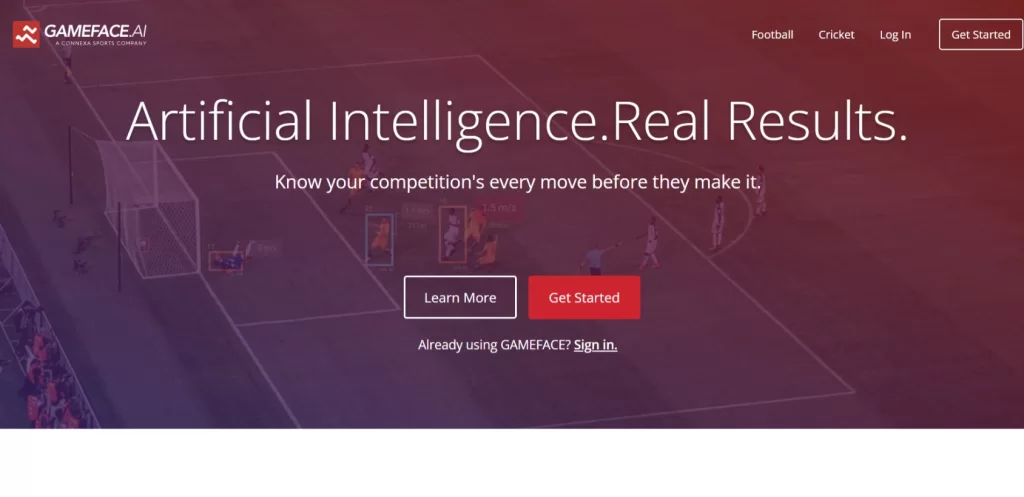
The platform provides services for video analytics of sports match events. The users can receive analytics by simply uploading the footage, then the platform will generate custom reports.
The user can get queries regarding any sports for example, they can find how many times Ronaldo made a long pass in a particular footage.
GameFace.AI supports the following events such as ball tracking, player tracking, and match events such as goals, shot-on goals, passing patterns, team formation, etc.
| Founded in | 2014 |
| Headquarters | Sydney, Australia |
| Founded by | Jalaluddin Shaik |
| Available on | Web |
2.Kickoff.AI
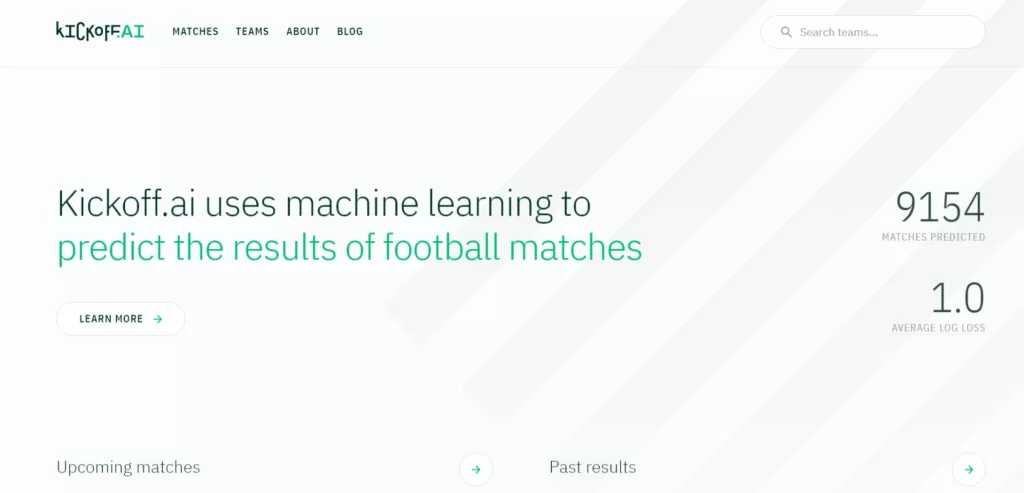
This service utilizes machine learning for predicting the results of football matches. The platform uses Bayesian inference and the participation of players for accurate prediction.
| Founded in | 2016 |
| Headquarters | Lausanne, Switzerland |
| Founded by | Matthias Grossglauser, Patrick Thiran |
| Available on | Web |
3. Buddy Up
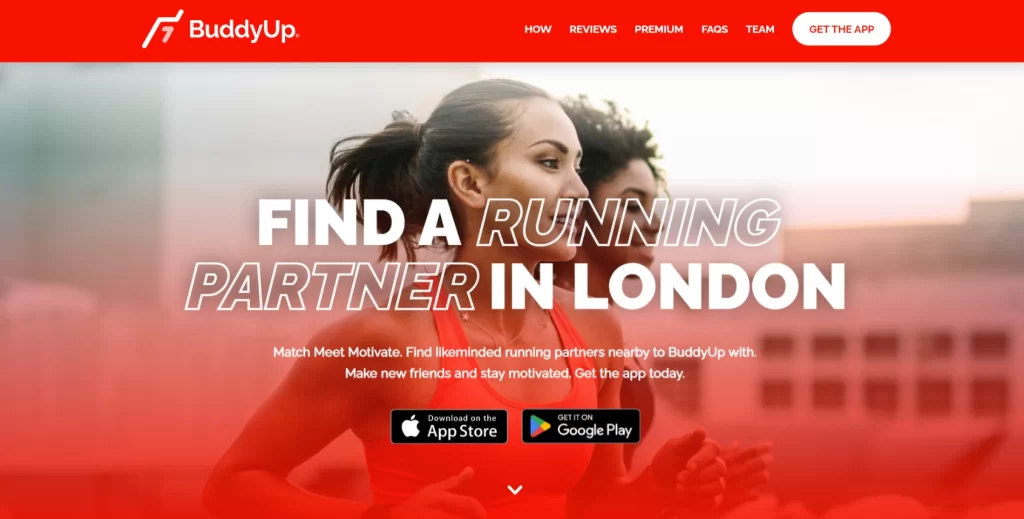
The start-up allows users to find their running partners that are constantly motivated to stay fit and healthy. Buddy Up work similarly to Tinder where user can swipe the profile until they found the perfect match.
| Founded in | 2014 |
| Headquarters | London, United Kingdom |
| Founded by | Joey Hext |
| Available on | Android & iOS |
4. Zone 7
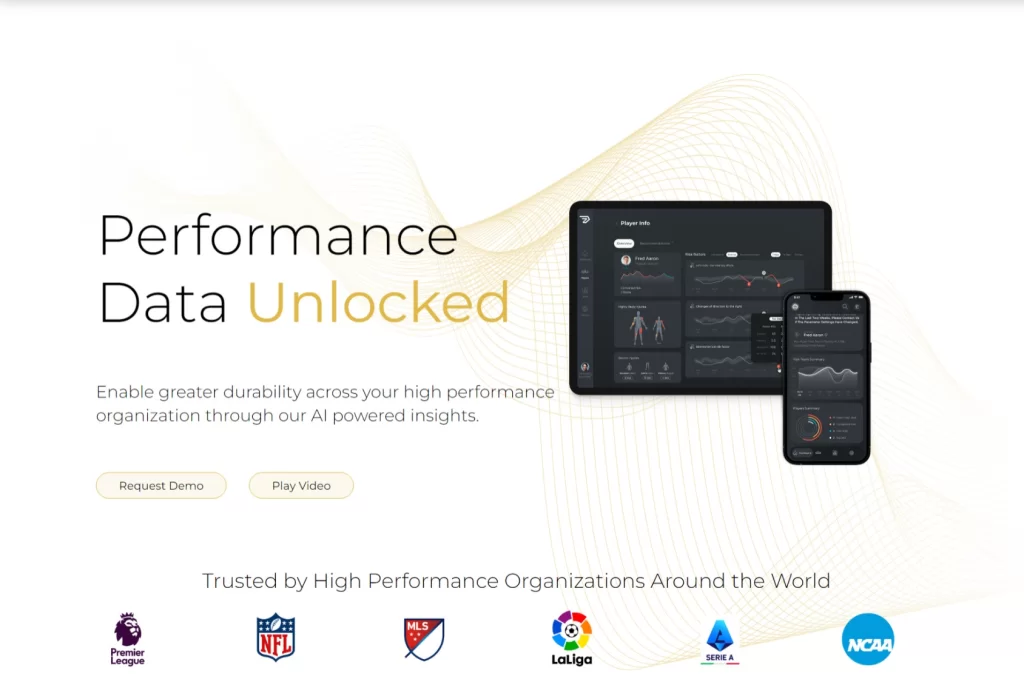
The startup allows players to track their results at the highest level. Zone 7 provides integration to devices such as phones to smart wearable devices.
One of the most innovative features that worth considering is the platform predicts injury risk based on a larger set of injury data and sends real-time warnings to users whenever they risk overloading their bodies during the workout.
| Founded in | 2017 |
| Headquarters | San Francisco, USA |
| Founded by | Tal Brown and CTO Eyal Eliakim |
| Available on | Android |
5. SportsBox.AI
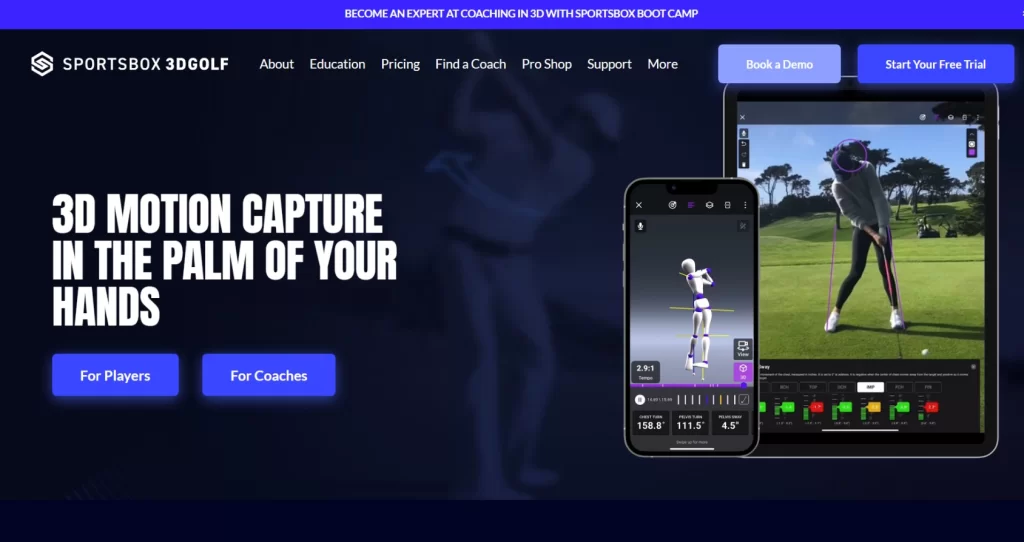
The platform uses computer vision technology for capturing and analyzing the body movements of human joints. The user can analyze their body movements using 3D models that visualize their actions in 360 degrees.
Moreover, the application also facilitates the creation of a group where users can add their coach and access classes for evaluating and enhancing their physical training
| Founded in | 2020 |
| Headquarters | Bellevue, USA |
| Founded by | Jeehae Lee, Samuel Menaker, Stephanie Wei |
| Available on | Android & iOS |
The Process Of Implementing AI In Sports
Implementing AI in a sports app can enhance player tracking, performance analysis, prediction models, and fan engagement.
The general roadmap for AI implementation is as follows.
1. Define Objectives
Identify key areas where AI can bring value to your app. For example, you can enhance player performance analysis, offer personalized fan recommendations, or create predictive gaming outcome models.
2. Data Collection
Gathering relevant data for training and analysis is crucial to AI implementation. The data collection includes gaming results, player statistics, historical data, sensor data, fan engagement data, etc.
3. Data Preprocessing
The perfect preprocessing and reformatting of the collected data is the must-have process for properly training suitable AI algorithms. The process includes data normalization, handling missing values, feature engineering, etc.
4. AI Techniques Selection
The AI comprises various techniques and subdomains, including deep learning, computer vision, machine learning, natural language processing, and reinforcement learning.
Make a perfect selection of appropriate AI techniques based on your business objectives and data for enhancing the platform experience with the sports app.
5. Develop Predictive Models
Utilize deep learning algorithms or machine learning for developing predictive models such as predicting gaming outcomes, player performance, fan behavior, etc.
6. Player Tracking And Analysis
Use computer vision techniques to track players’ movements for generating effective data. The data can be utilized to gain insight into player strategies, performance, and tactical recommendations.
7. Real-Time Analysis
The implementation of real-time analysis capabilities can be used to provide immediate insights during live games.
Real-time analysis improves processes like detecting patterns, live data streams, and generating predictions or recommendations.
8. Fan Engagement
Fan engagement is a crucial factor in empowering your mobile app with a better platform experience.
You can use AI techniques to enhance fan engagement. For example, utilization of NLP techniques for analyzing social media conversations and sentiment analysis to understand your fan reactions.
Moreover, with the help of artificial intelligence, you can experience exceptional fan engagement by providing highlights and personalized recommendations.
9. User Interface And Visualization
Improve your app engagement by delivering an initiative user experience that represents AI-driven insights in a user-friendly manner.
Consider incorporating visual elements into your AI-driven mobile apps, such as charts, interactive elements, visualizations, etc.
10. Testing And Evaluation
Testing every component of your sports is crucial to ensure your model’s reliability, accuracy, and performance. Also, evaluate your model performance against appropriate metrics to ensure the proper testing of your model.
11. Continuous Improvement
Continuously improve and refine your algorithm and app features by monitoring usage patterns.
Moreover, you can check user feedback and stay updated with new artificial intelligence techniques to enhance your app capabilities and stay competitive.
Conclusion
Artificial intelligence and data analytics are the turning points for the development and transformation of the sports industry. Both technologies have played a crucial part in increasing audience engagement and developing game strategies.
Mobile applications that use artificial intelligence can dominate the sports market and generate enormous revenues.
However, there will be a requirement for expertise from AI developers to implement artificial intelligence in your business.
Hire a reliable AI development company like Idea Usher to build AI-enabled solutions for your business.
We are a team of developers who develop customized mobile apps and software and are experts in implementing the latest technologies like artificial intelligence, blockchain, and augmented and virtual reality.
Our team can help you develop customized apps for your sports business by implementing Artificial Intelligence and other latest technologies.
Schedule a free consultation call to understand how we can help you establish and expand your sports business.
Contact Idea Usher
Hire ex-FANG developers, with combined 50000+ coding hours experience




Email:
Phone:
FAQ
Q. How is AI used in sports?
A. AI can be used in sports in various ways, such as tracking player performance, sports predictions, advertising, personalized training, scouting and recruitment process, etc.
Q. What is an example of AI in sports?
A. One popular example of AI in sports is determining a swimmer’s performance below water with the help of human pose estimation. The process manually annotates the swimmer’s body.
Q. What is the advantage of AI in sports?
A. Artificial Intelligence enhanced athlete safety and injury prevention by offering a more data-driven approach to coaching and training the athlete. By identifying athletes’ movements, artificial intelligence can identify potential issues in their training that can lead to injury and can inform them in advance.
